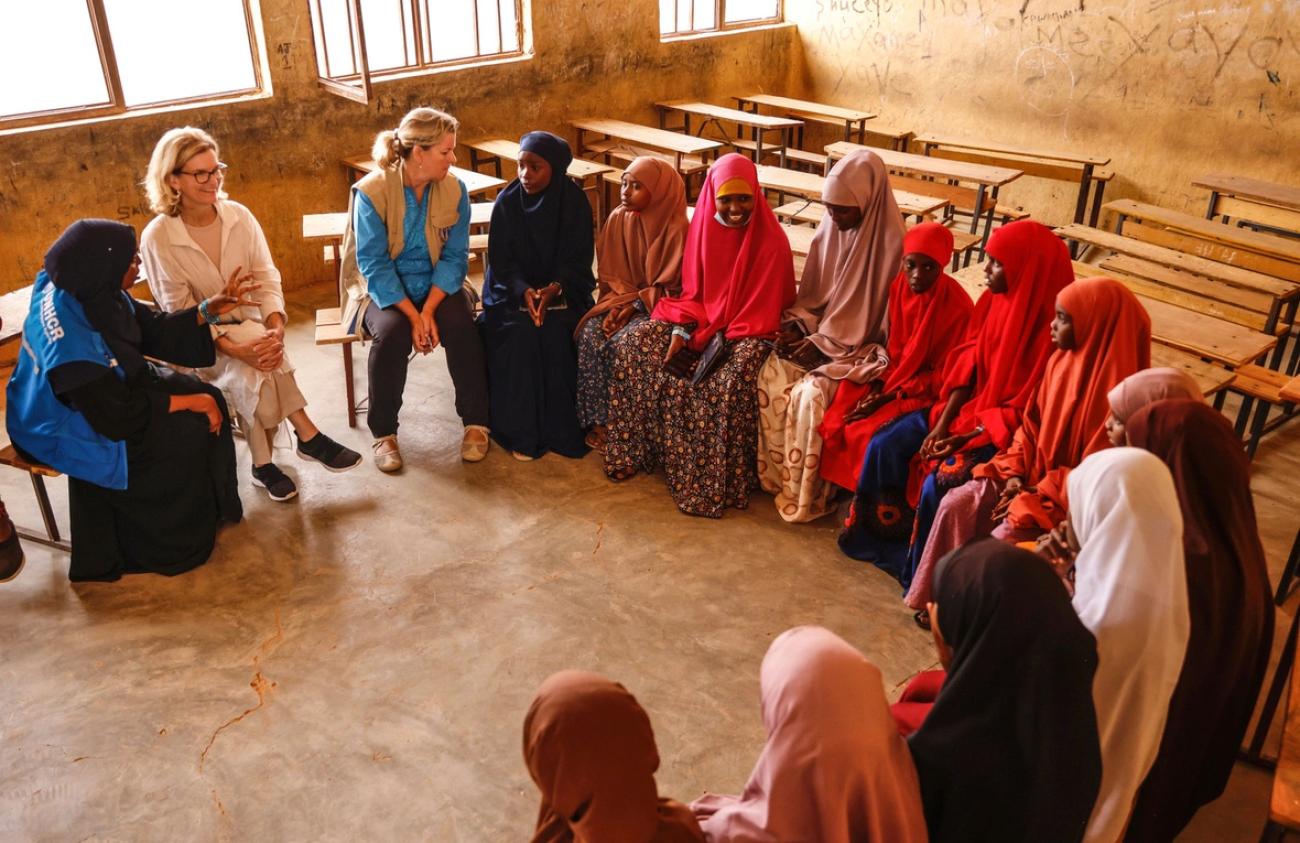‘Refugee connectivity – a bold approach to connect millions forced to flee’

UNHCR, the UN Refugee Agency, and the International Telecommunication Union (ITU) launched a transformative agenda to connect refugees around the world.
UNHCR, the ITU and the GSMA - the trade association for mobile operators – are seeking to ensure all major refugee hosting areas have available and affordable connectivity by 2030, advancing the digital inclusion of over 20 million forcibly displaced people and local host communities.
Wrapping up a joint visit to Ethiopia, ITU’s Secretary General, Doreen Bogdan-Martin, and UNHCR’s Deputy High Commissioner, Kelly T. Clements, witnessed how digital connectivity is providing a lifeline and solutions for refugees and displaced people, helping them access mobile money, online health services, connected education and as an avenue to employment in the digital economy.
They issued an urgent global call to action to increase investment and establish an enabling regulatory framework for providing connectivity to forcibly displaced and stateless people and the communities that host them.
A joint letter signed in 2021 between the two agencies outlined a shared vision of a connected society that leaves no one behind, in line with the Sustainable Development Goals.
“Today in Ethiopia, we’ve heard first-hand from refugee communities how much digital technology means to them; crucial to their self-reliance and as a way to connect to key services and loved ones,” said UNHCR’s Clements. “Many challenges remain. We must find affordable ways to connect the many forcibly displaced people who are still out of reach.”
“In Ethiopia, we’ve witnessed the ingenuity of refugee communities in finding whatever path they can to stay connected with society,” said ITU’s Bogdan-Martin, following a visit to a cybercafé in Bokolmayo in Melkadida refugee camp. “These communities are asking all stakeholders to do their bit to expand access to meaningful connectivity so that they can enjoy a safe, satisfying, enriching and productive online experience at an affordable cost. The ITU’s Partner2Connect Digital Coalition and the Global Refugee Forum can serve as important entry points for interested organizations and investors to pursue connectivity for all, including displaced people and their hosting communities.”
UNHCR, ITU and GSMA have developed an ambitious pledge around refugee connectivity that seeks to mobilize investments and further policy commitments to include refugees in national frameworks and objectives around digital access for all through universal connectivity. This includes fostering an enabling policy and regulatory environment for both expansion of infrastructure and lifting regulatory barriers to individual access for displaced people.
The partners aim to lay the foundation for advancing meaningful connectivity as both a community need and a cornerstone of digital transformation in the humanitarian sector. Driven by data, promising practices and through piloting new business models, the partners aim to devise pathways for new sustainable solutions to get displaced communities online.
To achieve this, they are seeking at least $20 million in core support, with at least $200 million in direct investment and contributions to advance the refugee connectivity agenda. Further detailed planning is underway in these areas, including in Ethiopia.


